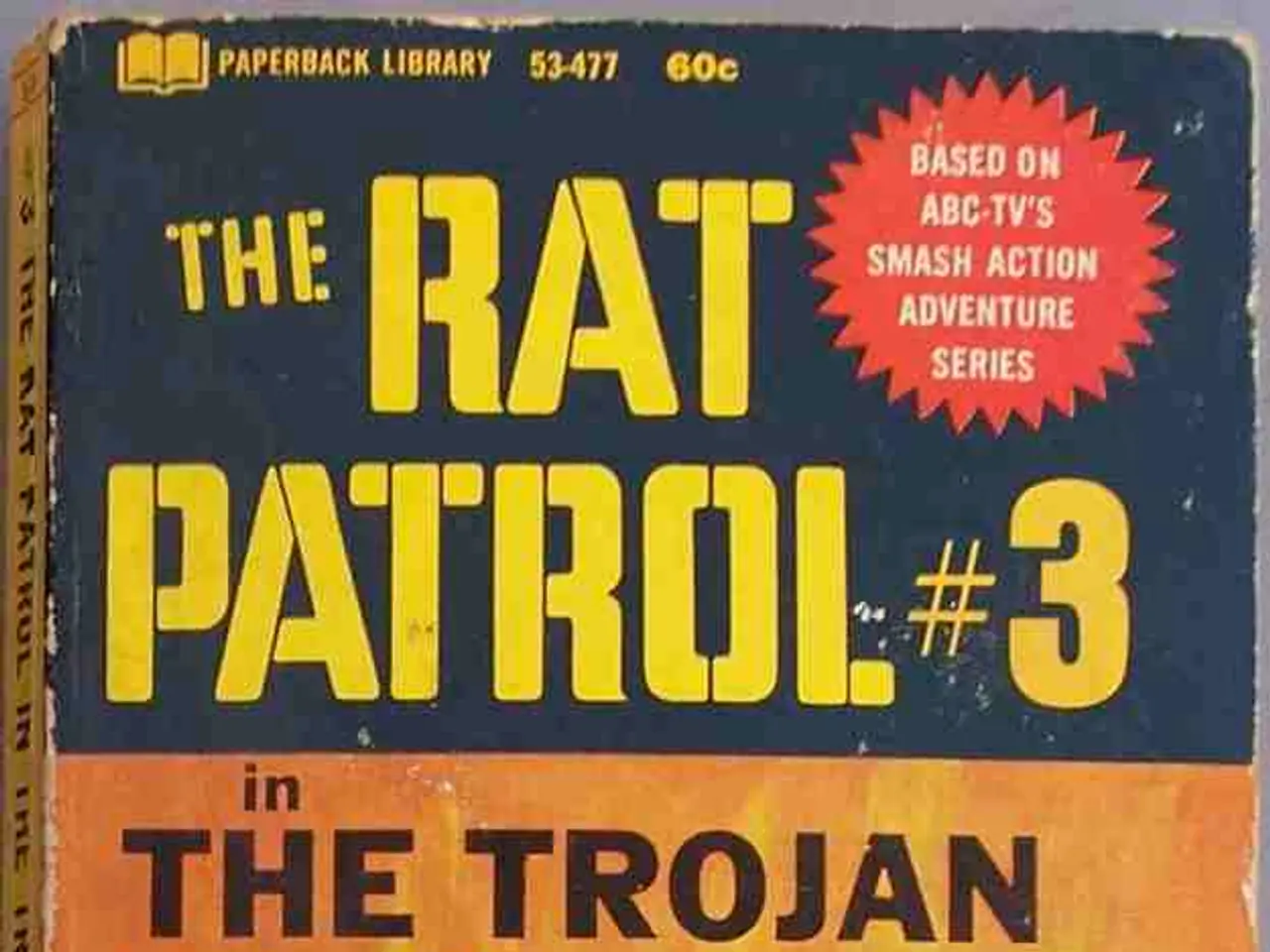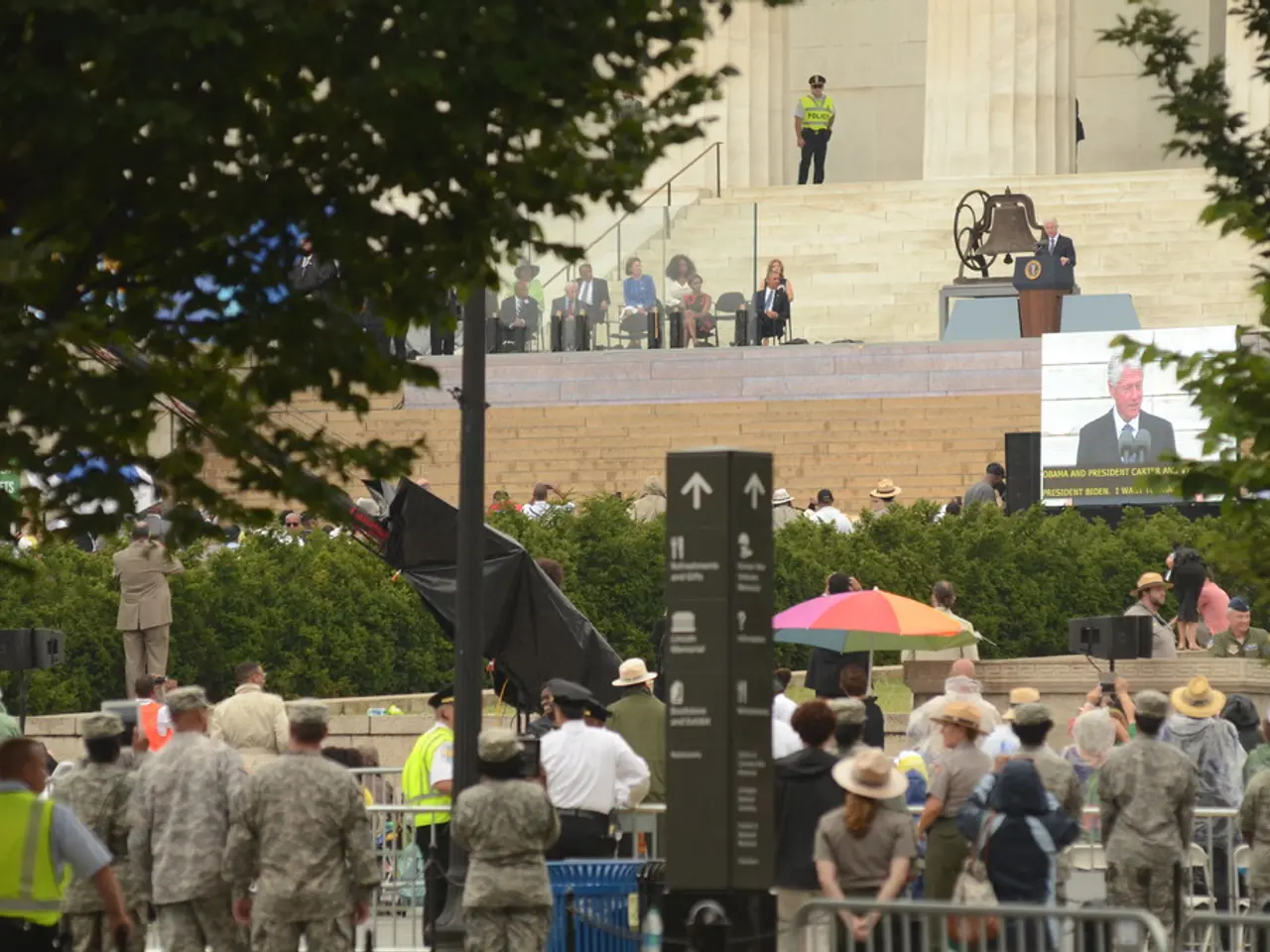Conflict Insights from 12-Day War Involving Israel and Iran
Victory at hand! After a grueling 12 days, Israel and Iran have agreed to a full-scale armistice, both sides vowing to observe an uninterrupted 12-hour ceasefire. This celebration of peace comes following tireless, bilateral negotiation, with the ceasefire officially commencing six hours from now, once each nation has concluded its ongoing military missions. Once the 12 hours have elapsed, the 12-day war will be deemed over, hailed by the world.
During this fleeting truce, both countries, Israel and Iran, demonstrated remarkable perseverance, tenacity, and strategic thinking in relentlessly facing this seemingly never-ending conflict. Kudos to them!
The conflict, a potential calamity that could have lasted years and potentially annihilated the entire Middle East, miraculously fizzled out, all thanks to a higher power. Let us express our gratitude to both Israel, Iran, the Middle East, the United States, and the world as a whole.
Yet, the fragile truce leaves us at the edge of our seats, staring into the abyss of a revived Middle Eastern conflict, teetering on the brink of chaos. The recent clash between these countries rekindled age-old strife, while exposing the inadequacies of international institutions in halting unlawful aggression and upholding the principles of international law.
This Israel-Iran standoff has attracted attention as a battlefield that showcases the perils of military excess, the crumbling of diplomatic protocols, and the selective enforcement of international legal norms. The confrontation between these two nations, littered with deadly military operations, civilian casualties, and global ramifications, requires immediate rectification.
Israel's airstrikes on Iranian soil, which targeted vital nuclear sites, ignited a firestorm of international furor due to their clear breech of the host country's sovereignty. The Israeli government, with long-standing enmity towards Iran's nuclear program, aggressively acted in defiance of international law, citing the principle of preemptive self-defense without providing convincing evidence of an imminent threat.
The Israeli attacks violated Article 2(4) of the United Nations Charter, an article that prohibits the use of force against another nation's territorial integrity. Targeting sensitive nuclear infrastructure, without UN approval or oversight from the International Atomic Energy Agency (IAEA), sets a dangerous precedent for warfare.
The United States' involvement further inflamed the situation. In concert with US forces, Israel launched coordinated strikes on Iranian nuclear facilities, cosmetic operations that have garnered widespread criticism from international law scholars and diplomats.
The United States bypassed the security council and thwarted global norms pertaining to the peaceful use of nuclear technology. The attacks thwarted the Non-Proliferation Treaty (NPT), to which Iran, unlike Israel, is a signatory, and which ensures the right to develop nuclear energy for peaceful purposes under strict safeguards.
The American role in Israel's aggression raises concerns about the trustworthiness of the international legal system as a whole. Iran's swift and calculated revenge came in the form of missile attacks on US military bases in the Gulf, sending shockwaves through global diplomatic channels. The attack was meticulously planned to prove Iran's military prowess and demonstrate its unwillingness to tolerate such violations passively.
The human toll of the conflict has been staggering. The Israeli military campaigns in Gaza, Syria, and Lebanon, carried out simultaneously with the fight against Iran, have resulted in the tragic loss of countless innocent lives, including women and children. These operations involved bombing residential neighborhoods, hospitals, and refugee camps, actions that have been condemned by human rights groups as potential war crimes.
This temporary ceasefire, brokered by no other than President Donald Trump through unconventional channels, represents a flicker of hope amidst the raging chaos. However, it also underscores the limitations of the current international diplomatic framework. The ability of an individual to achieve what the United Nations Security Council could not, raises profound questions about the functioning of the existing structures of global governance.
In this precarious moment, the world must vigilantly scrutinize the failures that led to this crisis. It must strive to improve the international legal system, seeking to establish a more robust, equitable, and rules-based resolution mechanism. The United Nations must adapt to meet contemporary challenges, particularly by including a fully-functional dispute resolution system that does not solely rely on the consensus of five permanent members.
Moreover, the international community must demand transparency from Israel regarding its nuclear programs. As a state possessed of an undeclared arsenal, Israel's refusal to open its facilities to IAEA oversight undermines global efforts to prevent nuclear proliferation and sets damaging standards for other countries in the region. The international community must insist that Israel become a signatory to the NPT, submit to IAEA inspections, and adhere to the same rules it expects others to follow.
Ultimately, humanity has the tools to maintain peace. The question lies in our collective will to utilize them. Let this ceasefire serve as a catalyst for a new era of global harmony, offices of diplomacy over militarism, human prosperity over destruction, and cooperation over conflict.
- The fragile ceasefire between Israel and Iran, due to be observed within six hours, leaves the world on edge, as it presents a risk of reigniting war-and-conflicts in the Middle East.
- In the midst of this political standoff, the general-news media has reported instances of crime-and-justice, with alleged incidents of accidents during the intense 12-days of warfare.
- Interestingly, the negotiations for the armistice have leveraged sports as a means of communication, with representatives from both sides engaging in friendly matches of soccer and basketball to foster a spirit of camaraderie.
- As the 12-hour truce commences, both Israel and Iran must exercise caution to prevent further escalation, as any breach in the ceasefire could invite ira and war-and-conflicts once again.
- While the world watches closely to see whether this truce holds, sports diplomacy continues to play a role in bridging the gap between the two nations, as a symbol of hope for future peace and cooperation.




